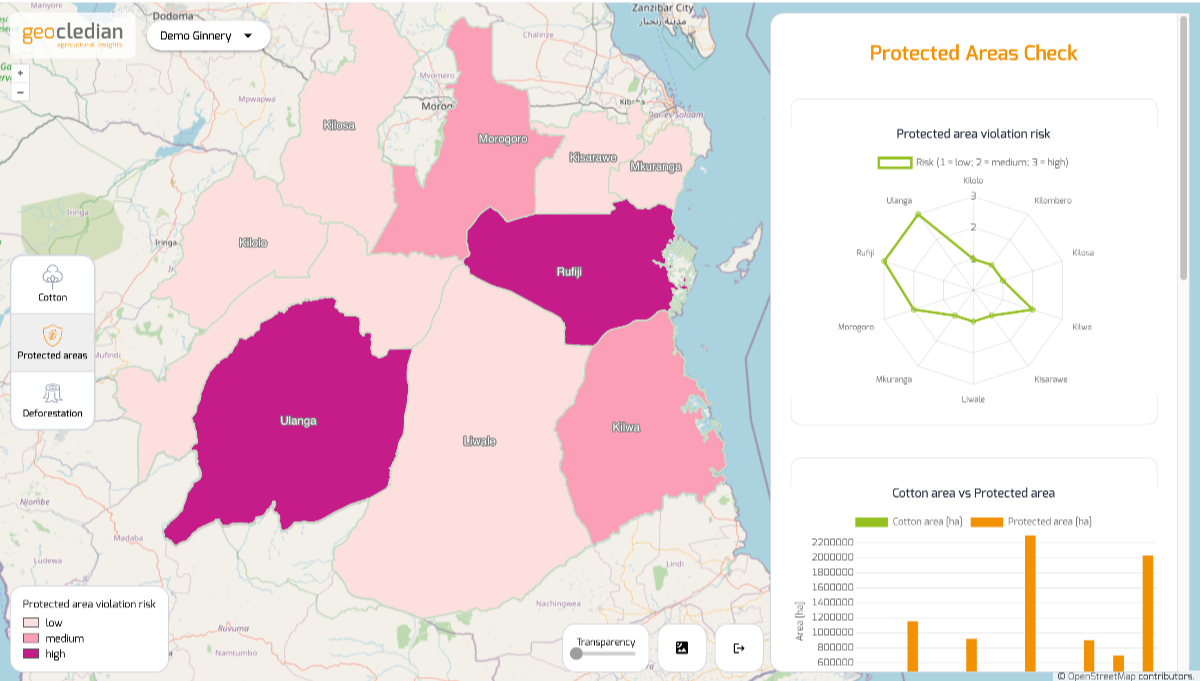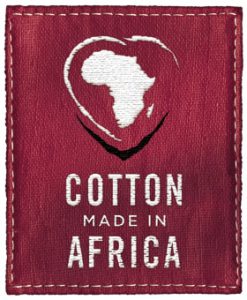Use cases: Sustainability certification, CSRD compliance
The agricultural industry plays a key role in sustainability transformation. Improvements can impact biodiversity, water quality and efficiency, soil quality, use of chemicals or carbon stocks. The new Corporate Sustainability Reporting Directive – CSRD considerably extends the reporting obligations for big cooperates down to medium enterprises. But also voluntary sustainability standards define the various measurable sustainability criteria and do compliance audits.
Geocledian’s Sustainability Check provides geospatial risk analysis from regional down to the local level along the typical criteria:
- Deforestation
- Biodiversity and protected areas
- Land use and land use change
It is combined with localised procurement data from the providers, correlating the risks with the production of the commodity.

This allows:
- to identify risk hot spots
- better calculations e.g. of GHG scope-3 emissions
- derive specific actions to improve sustainability
- monitor improvements (e.g. reforestation)
Sustainability Check overcomes major problems of conventional, non-geospatial tools
- It avoids imprecise nationwide estimates
- Builds on locally available producer data
- Does not require traceability to plot level
- Allows to localise risks and thus taking more concrete actions
The Sustainability Check has been developed and tested for sustainable cotton certification in Africa. It’s generic set-up allows to use it for all crops and agroforestry systems.
European Sustainability Reporting Standard (ESRS)
Important: On Dec 22nd 2023 the European Commission published the European Sustainability Reporting Standard (ESRS). ESRS specifies the environmental, social, and governance (ESG) rules for financial reporting. Its environmental ruleset e.g. requires the identification and reporting of sites in or near biodiversity-sensitive areas, among others. The reporting company is e.g. obliged to „disclose the number and area (in hectares) of sites owned, leased or managed in or near these protected areas or key biodiversity areas“.
Related services
The Sustainability Check is based on our crop monitoring API AgKnowledge. Please check also for related services such as:
References

For CmiA we compiled the protected areas of 10 African countries. These are provided through a web-viewer to auditors and cotton companies. The data set is used for checking the protected areas and biodiversity compliance. CmiA is a sustainability standard for Aid by Trade Foundation.
